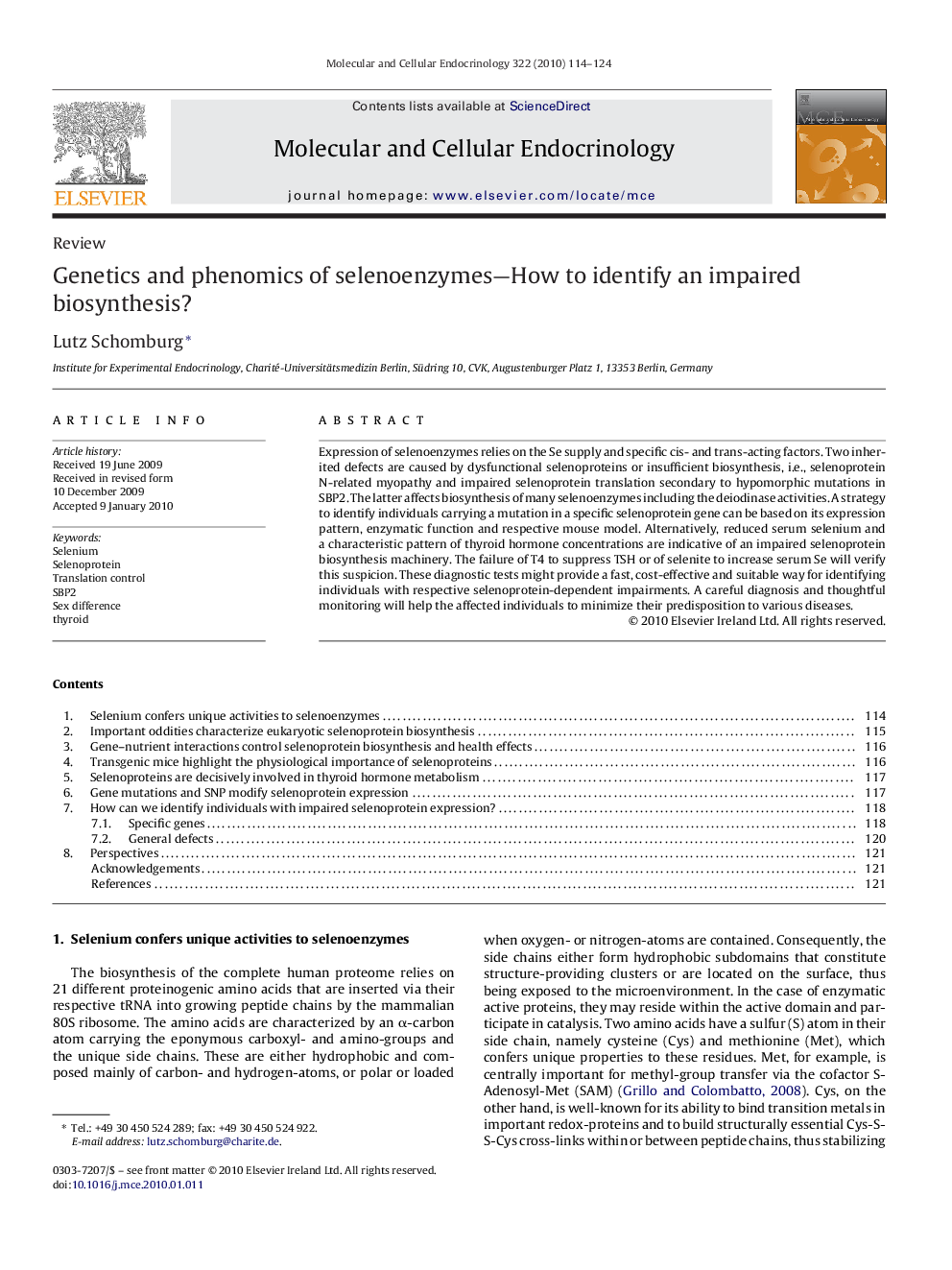| Article ID | Journal | Published Year | Pages | File Type |
|---|---|---|---|---|
| 2196851 | Molecular and Cellular Endocrinology | 2010 | 11 Pages |
Expression of selenoenzymes relies on the Se supply and specific cis- and trans-acting factors. Two inherited defects are caused by dysfunctional selenoproteins or insufficient biosynthesis, i.e., selenoprotein N-related myopathy and impaired selenoprotein translation secondary to hypomorphic mutations in SBP2. The latter affects biosynthesis of many selenoenzymes including the deiodinase activities. A strategy to identify individuals carrying a mutation in a specific selenoprotein gene can be based on its expression pattern, enzymatic function and respective mouse model. Alternatively, reduced serum selenium and a characteristic pattern of thyroid hormone concentrations are indicative of an impaired selenoprotein biosynthesis machinery. The failure of T4 to suppress TSH or of selenite to increase serum Se will verify this suspicion. These diagnostic tests might provide a fast, cost-effective and suitable way for identifying individuals with respective selenoprotein-dependent impairments. A careful diagnosis and thoughtful monitoring will help the affected individuals to minimize their predisposition to various diseases.
